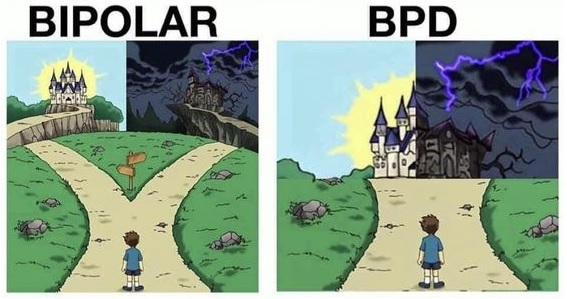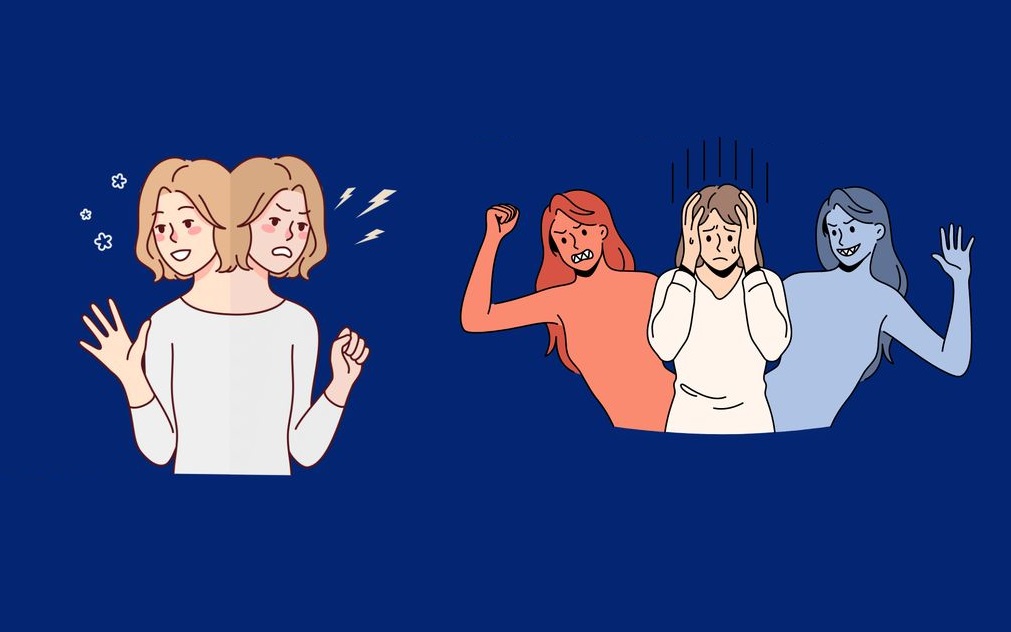Bipolar disorder and borderline personality disorder (BPD) often present with overlapping symptoms, leading to frequent confusion between the two. Unlike conditions diagnosed through clear physical indicators like MRI scans or blood tests, these mental health disorders are identified through behavioural symptoms, making accurate differentiation essential yet challenging. Effective treatment hinges on recognising their distinct characteristics despite some apparent similarities. Here are just some ways these two conditions are the same and different…
Interpersonal Relationships
Individuals with BPD typically experience a series of intense, unstable relationships. Their persistent struggle with self-esteem often drives a continuous need for affirmation and attention from partners. For someone with BPD, the end of a relationship can feel akin to abandonment, prompting an urgent search for a new connection to alleviate these intense feelings.
Conversely, while people with bipolar disorder may also face difficulties in maintaining long-term relationships, the root causes differ. Their relational challenges are usually linked to the dramatic mood swings they experience, ranging from deep depression to elevated mania. Although individuals with bipolar disorder may share the fear of being abandoned, their relationships tend to be less volatile and more enduring than those of someone with BPD.
Self-harm and Risk Behaviors
For those with BPD, emotional states can escalate rapidly, leading to extreme reactions such as self-loathing, which may manifest in overeating, excessive drinking, overspending, or more direct forms of self-harm like cutting or burning. Thoughts of suicide are tragically common as well.
In bipolar disorder, impulsive and risky behaviours typically occur during manic phases, including extravagant spending sprees or engaging in dangerous activities. The depressive phases can be profoundly debilitating, with feelings of hopelessness and worthlessness sometimes leading to suicidal thoughts.

Emotional Volatility
BPD is characterized by quick, intense emotional responses to seemingly minor triggers—like a casual remark. These intense emotions can lead to impulsive decisions, such as abrupt life changes that may be reversed just as quickly. Such rapid emotional and behavioural shifts are hallmarks of BPD.
In contrast, mood swings in bipolar disorder are not usually triggered by external stimuli but emerge from internal states. The mood transitions in bipolar disorder, such as shifts from depression to mania, typically last longer, spanning days or weeks, unlike the fleeting flare-ups seen in BPD.
The Importance of Accurate Diagnosis
Given the complexities and overlapping symptoms of bipolar disorder and BPD, it is crucial to seek evaluation from a mental health professional. Accurate diagnosis is critical to effective treatment, offering hope and significant improvement in managing symptoms for those affected. Understanding the nuances between these disorders not only aids in better treatment outcomes but also enhances the support networks for those affected, enabling more informed and compassionate care.



